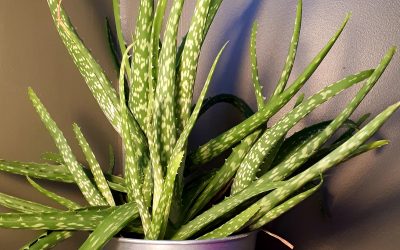We need to get vitamin C from our diet, we can’t make it ourselves like some animals can, but you can easily find it in fresh fruits and vegetables.
It’s important for our immune system. Our white blood cells need enough vitamin C to destroy viruses that we encounter, especially during the winter.
How sugar inhibits vitamin C
Sugar from the food we eat is broken down into glucose, and this helps give us energy. Glucose and vitamin C both need to get from the blood into the cells where they do their work.
They get into our cells through the same gateway because they have a similar chemical make-up.
Your body prefers to let glucode in to the cell at the expense of vitamin C. This means if there is an excess of glucose in the blood, then glucose is prioritised. This comes from our evolutionary ‘fight or flight’ mechanism, always allowing the body to use glocse which enables us to run from danger.
Supplementing with Vitamin C is less effective fighting colds in those people who eat a lot of sugar as well.
Sugar also feeds pathogenic bacteria in the gut which gives rise to more inflammation across the body, placing more strain on the immune system.
Every cell membrane is made up of fats, and when we eat healthy omega-3 fatty acids, such as those found in flax seed and fish oils, more nutrients can pass into cells as the membranes are more effective.
As cell membranes become permeable, blood glucose will reduce, making vitamin C more bioavailable.
Vitamin C rich foods
Foods rich in vitamin C include:
- red peppers
- parsley,
- broccoli,
- cauliflower,
- spinach,
- kale,
- strawberries,
- oranges,
- kiwi fruit,
- & tomatoes.
Vitamin C is water soluble, which means when you boil vegetables some of the vitamin C will leak out into the water. The levels of vitamin C also decrease over time, so the fresher your produce is the better.

IBS Nutritionist
Hi, I'm Anna Mapson, registered Nutritional Therapist.
I help people with IBS and SIBO get control of unpredictable gut symptoms to find long term relief from painful and embarrassing IBS without restrictive dieting.
I can help you to:
- understand your digestion better, so you recognise your triggers
- eat a well balanced diet, with tasty meals that are simple to prepare
- reintroduce your trigger foods so you can get back to enjoying food again
Find more about my 3 month 1:1 Gut Reset programme.
Should I see a Nutritional Therapist?
Maybe you've had ongoing tummy bloating, or you just feel really tired all the time. Maybe you've just been diagnosed with high blood pressure, or high cholesterol. If you're considering working with a nutritional therapist here is a sneak behind the scenes look at my...
Nutrition Myth – I need superfoods to be healthy
If you've got IBS you have probably trawled the internet looking for the super food that will help your symptoms. What are superfoods? There is no formal definition of a super food, which is why there is confusion about their benefits. Superfoods are generally...
Superfoods – Benefits Of Eggs
Eggs are an amazing powerhouse of goodness – you can snack on a boiled egg, or add them to pancakes or omelettes. There are so many benefits to eating eggs, they are rich in protein, selenium and contain some vitamin D, B12 and B6. Choose organic if you can, or at...


